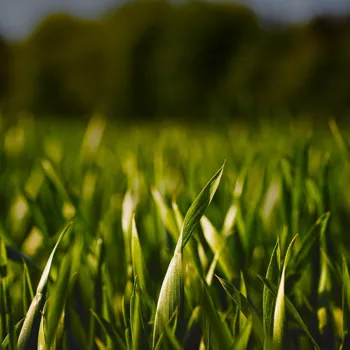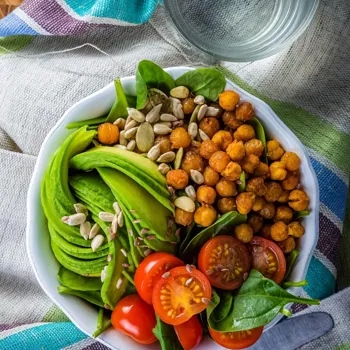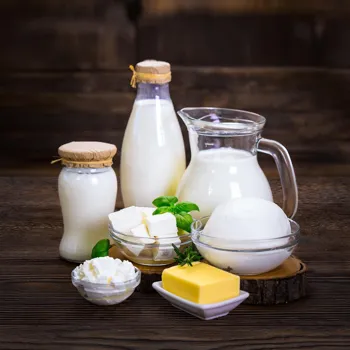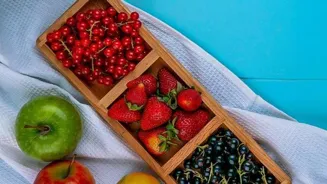Unlock the secrets to good health with essential vitamins and minerals. Dive into this guide for a vibrant life!
Namaste, readers! In the hustle-bustle of our daily lives, it's easy to overlook something
very important: our health. We run around, fulfilling responsibilities, but often neglect the very thing that allows us to do it all.
Proper nutrition is the foundation of a healthy and happy life, and vitamins and minerals are critical building blocks. Think of them as tiny but mighty warriors, fighting to keep our bodies in tip-top shape.
Let's explore five essential vitamins and minerals that every Indian should be aware of, ensuring a vibrant and energetic life. Don't worry, understanding these essentials is simpler than you think. We'll break it down in a way that's easy to grasp and implement into your daily routine.
Get ready to embrace a healthier you!
Vitamin D crucial for bones, immune system; sunlight and diet key sources
Often called the "sunshine vitamin," vitamin D is absolutely crucial, especially in a country like India where, ironically, deficiency is quite common. While our abundant sunshine should theoretically provide ample vitamin D, factors like staying indoors (especially with air conditioning!

), wearing sunscreen religiously (which is good for skin cancer prevention!), and darker skin pigmentation can hinder vitamin D absorption. What does vitamin D do? It’s essential for strong bones. It helps our bodies absorb calcium, which is the main component of bone.
Without enough vitamin D, bones can become weak and brittle, leading to conditions like osteoporosis. But wait, there's more! Vitamin D also plays a vital role in our immune system. It helps our immune cells function properly, making us less susceptible to infections and illnesses.
A strong immune system is crucial for defending against everything from common colds to more serious diseases. So, how do you ensure you are getting enough Vitamin D? Sunlight exposure is the best natural source.
Aim for 15-20 minutes of direct sunlight exposure daily, ideally during midday when the UVB rays are strongest. Don’t overdo it though, sun safety is important!
Fortunately, vitamin D is also found in some foods like fortified milk products, mushrooms and paneer tikka (if you happen to find a recipe including vitamin D!).
Iron is vital for oxygen transport; prevent deficiency with diet and Vitamin C
Iron is the unsung hero of our blood. Its primary role is to carry oxygen from our lungs to every cell in our body.

Without enough iron, our tissues and organs don't get the oxygen they need, leading to fatigue, weakness, shortness of breath, and headaches – all telltale signs of iron deficiency anemia. Iron deficiency is particularly prevalent among women in India, often due to menstrual blood loss.
Growing children also have higher iron requirements to support their rapid development. It's crucial to be aware of the symptoms and take steps to prevent deficiency. How do you boost your iron intake? Include iron-rich foods in your diet like spinach, lentils, chickpeas, and fortified cereals.
Combining iron-rich foods with foods high in Vitamin C (like citrus fruits, bell peppers, and amla) enhances iron absorption. This is because Vitamin C helps transform iron into a form more easily absorbed by the body.
Simple combinations, such as having a glass of lemonade with your spinach palak paneer meal, can make a significant difference. If you suspect you might be iron deficient, consult your doctor for a blood test and appropriate supplementation.
Remember, too much iron can also be harmful, so it's best to get a professional opinion before starting any supplements.
Calcium is crucial for bones, muscles, and more, abundant in Indian foods
We all know calcium is essential for strong bones and teeth, but its role extends far beyond that. Calcium is involved in muscle function, nerve transmission, and blood clotting. A calcium deficiency can lead to brittle bones, muscle cramps, and even increased risk of fractures.

Think of calcium as the keystone of your skeletal and muscular system! Ensuring adequate calcium intake is particularly important during childhood and adolescence when bones are rapidly growing, and during old age when bone density naturally declines.
Thankfully, India has abundant sources of calcium in its cuisine. Dairy products like milk, yogurt, and cheese are excellent sources.
For those who are lactose intolerant or follow a vegan diet, other good sources include leafy green vegetables, fortified plant-based milk alternatives, and tofu that has been set with calcium. Including a variety of these foods in your diet will help meet your daily calcium requirements.
Make sure to pair your intake of calcium with that of vitamin D.
Vitamin C is crucial for immunity and skin health, found in fruits and veggies
Vitamin C, also known as ascorbic acid, is a powerhouse antioxidant that plays a key role in immune function. It helps protect our cells from damage caused by free radicals, strengthens our immune system, and promotes wound healing.
Vitamin C also aids in collagen production, a protein essential for healthy skin, hair, and joints. Lack of Vitamin C will result in the reduction of your body's resistance to diseases.
Vitamin C deficiency can lead to scurvy, a condition characterized by fatigue, weakness, bleeding gums, and poor wound healing. Fortunately, Vitamin C is abundant in many fruits and vegetables, making it relatively easy to obtain through diet.
Amla (Indian gooseberry) is a particularly rich source of Vitamin C, followed by citrus fruits like oranges, lemons, and grapefruits. Other good sources include bell peppers, tomatoes, and broccoli.
Unlike some vitamins, our body doesn't store much Vitamin C, so it's important to consume it regularly. A simple way to ensure you're getting enough is to include a serving of fruits or vegetables rich in Vitamin C with each meal.
Adding a squeeze of lemon to your water, snacking on an orange, or including bell peppers in your stir-fry can all contribute to your daily Vitamin C intake.
Vitamin B12 is essential for nerve function and red blood cells, often lacking in vegetarians
Vitamin B12 is crucial for nerve function, red blood cell formation, and DNA synthesis. It’s like the spark plug for your nervous system! A deficiency can lead to fatigue, weakness, numbness and tingling in the hands and feet, memory problems, and even neurological damage.
Vitamin B12 is primarily found in animal products, which makes vegetarians and vegans particularly vulnerable to deficiency. In recent times, even the non-vegetarians are finding themselves Vitamin B12 deficient.
Several studies around pan India, show that around 47% of the people are B12 deficient. What can you do to avoid it? If you're vegetarian or vegan, it's important to include fortified foods in your diet, such as fortified cereals, plant-based milk alternatives, and nutritional yeast.
You may also need to take a Vitamin B12 supplement to ensure you're getting enough. As with any supplement, it's best to consult with your doctor or a registered dietitian to determine the appropriate dosage for your individual needs.
Signs of B12 deficiency can be sneaky, so regular check-ups and blood tests are important if you're at risk.
AI Generated Content. Glance/InMobi shall have no liability for the content













